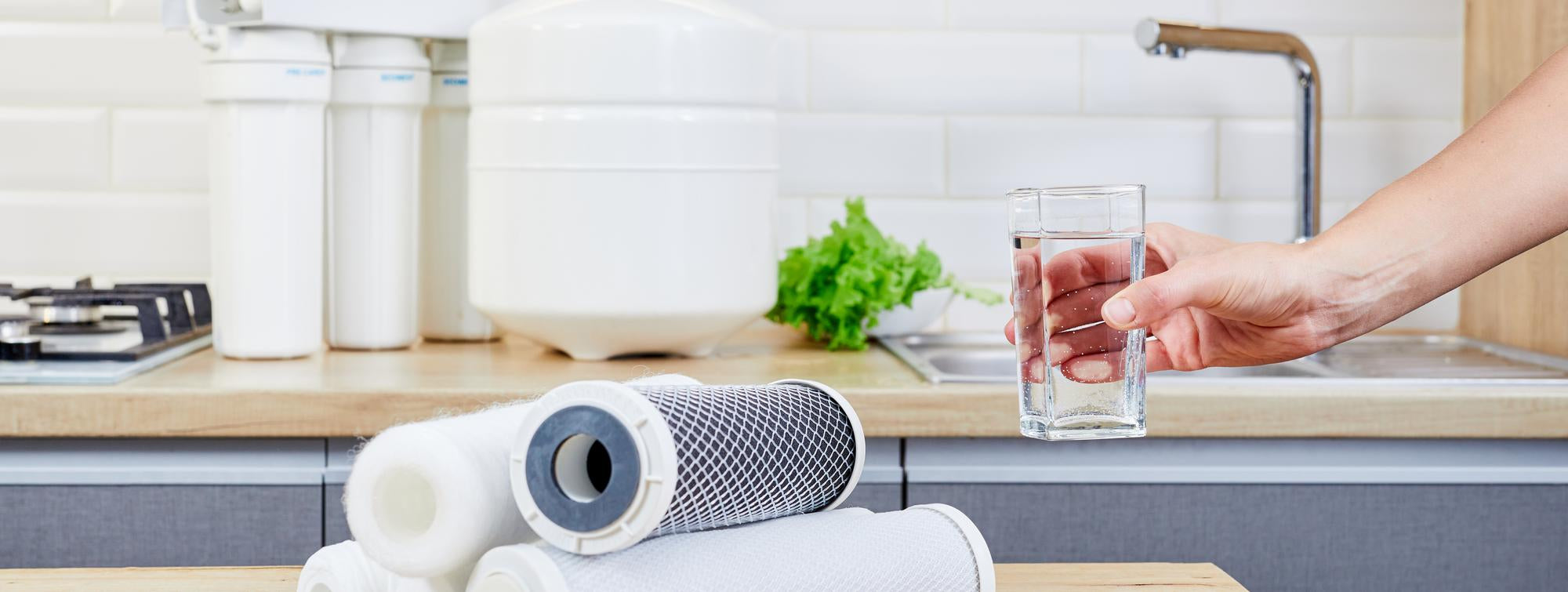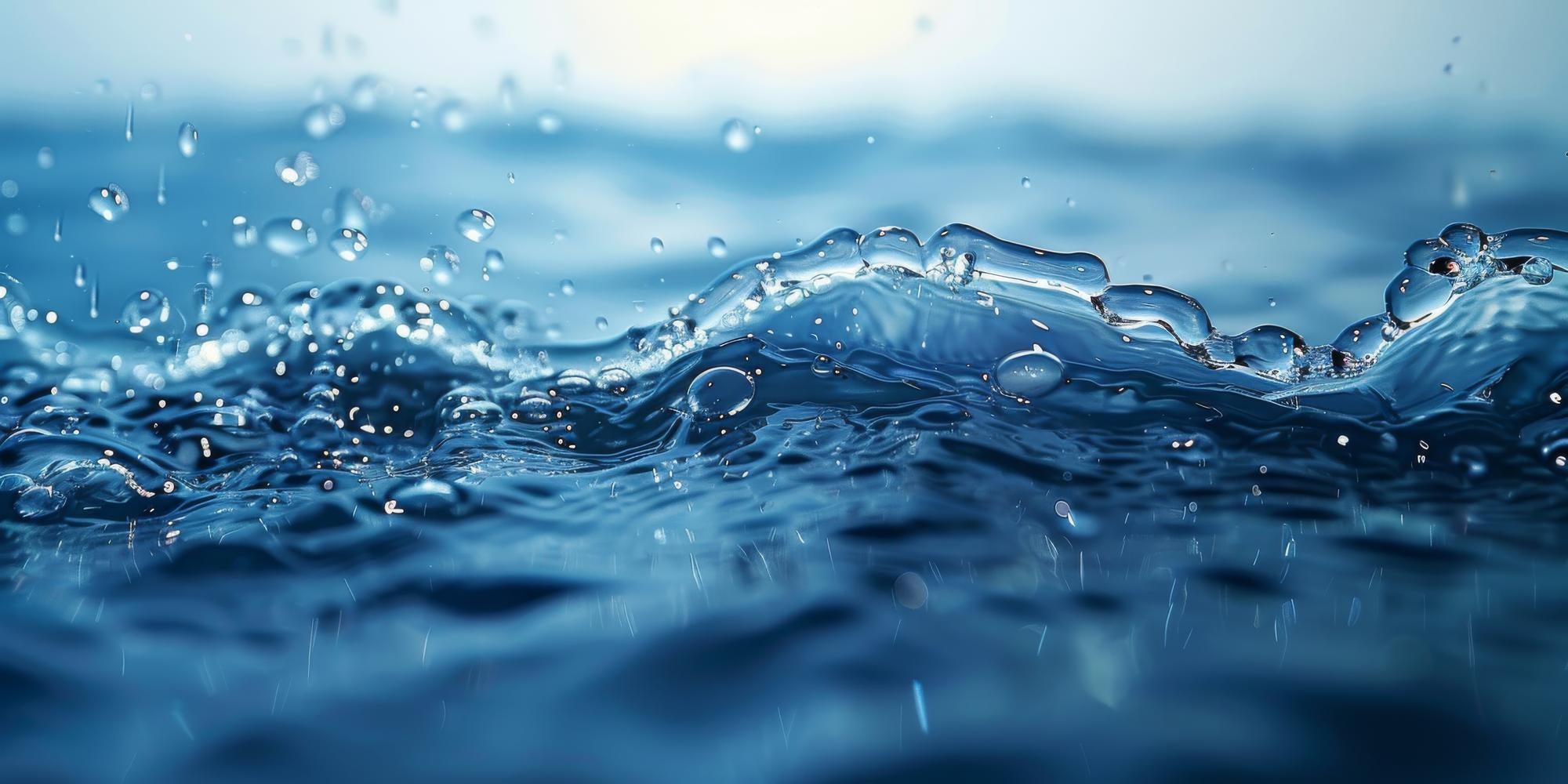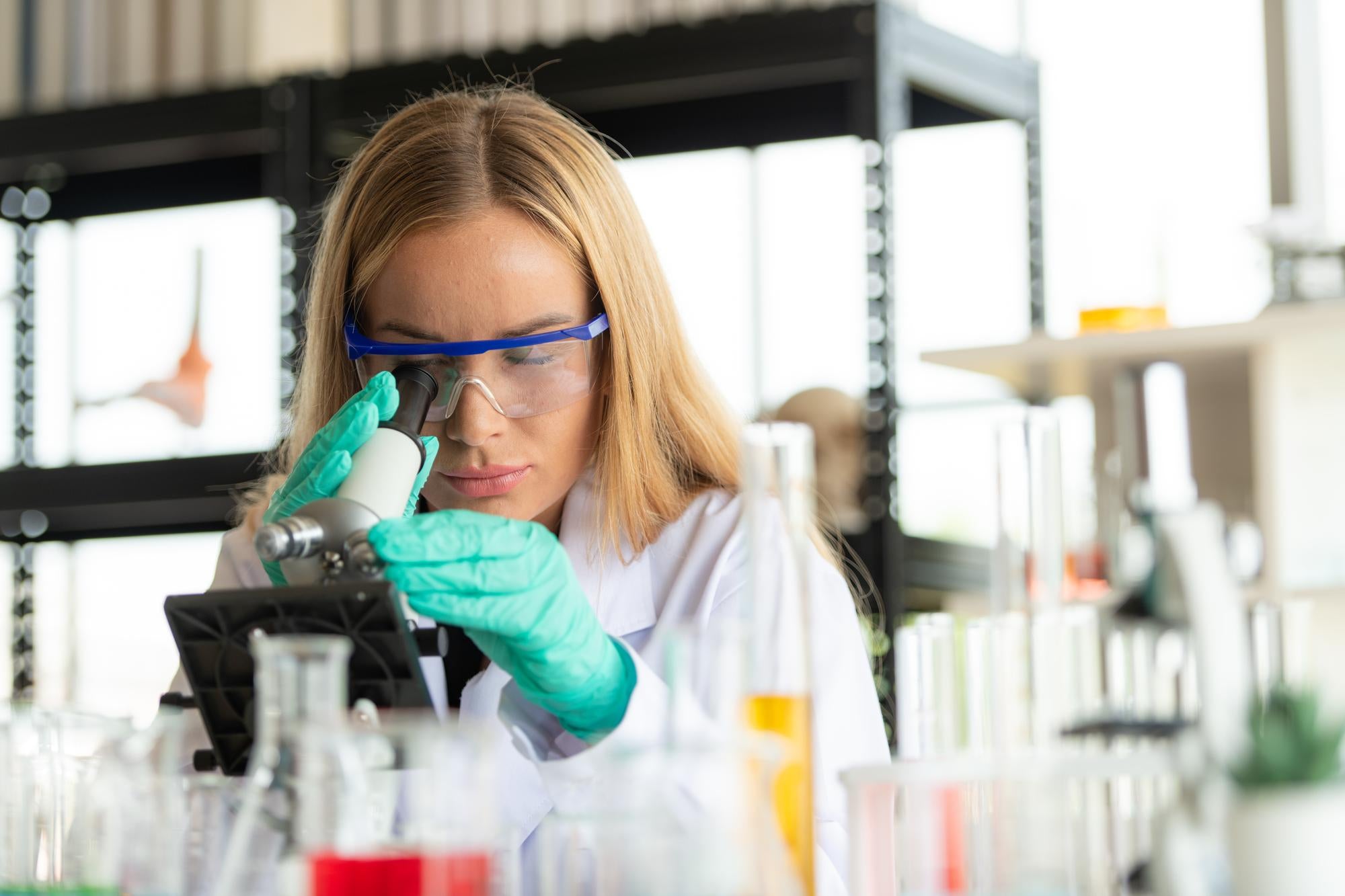
The quality of Dutch tap water
The Netherlands is known for its excellent tap water. It meets strict guidelines and is tested daily for dozens of substances. But 'excellent' doesn't always mean 'completely clean'.
What's still in your tap water?
Researchers are increasingly finding traces of:
- Drug residues
- PFAS (such as GenX)
- Pesticides
- Microplastics
Although these substances remain below the legally permitted standards, many people still choose to filter them out as a precaution.

When is a water filter needed? Meaningful?
Not everyone needs a filter, but in the following situations it can be a smart move:
- You live in an older house : Old pipes may still contain lead, especially in homes built before 1960.
- You have sensitive health : For young children, pregnant women, the elderly, and people with weakened immune systems, extra filtration can provide peace of mind.
- You are bothered by the taste or smell: Chlorine residues, metals, or hard water can cause an unpleasant aftertaste or odor.
- You want to use less plastic: With filtered water, you no longer need bottled water. That saves money and waste.
Ensure clean water. at home – with one simple upgrade







ClearSip 8-Layer UV Faucet Filter – Water filter for your kitchen faucet with LED & universal connection
Purify your tap water instantly with the ClearSip 8-layer filter. Thanks to UV technology, an LED display, and a universal connection, it removes up to 99.9% of limescale, chlorine, lead, and other harmful substances. A smart alternative to expensive filter taps.
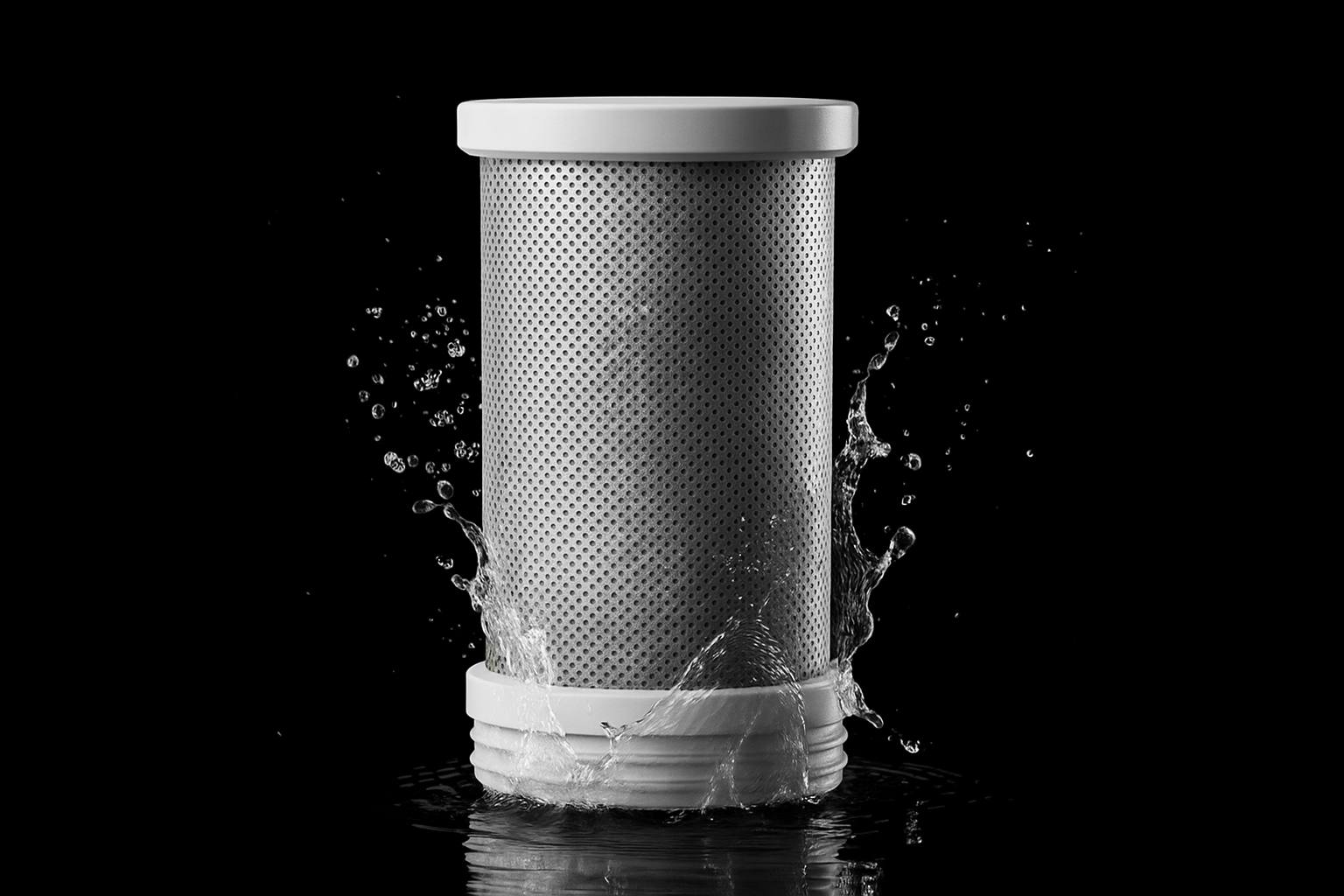
What does a water filter do? Exactly?
A good water filter can:
- Improve smell and taste
- Remove chlorine, lead, copper, and zinc.
- Reduce PFAS and pesticides
- Neutralize bacteria (with UV filters)
Important to know: a filter does not turn tap water into spring water, but it does provide extra purification.
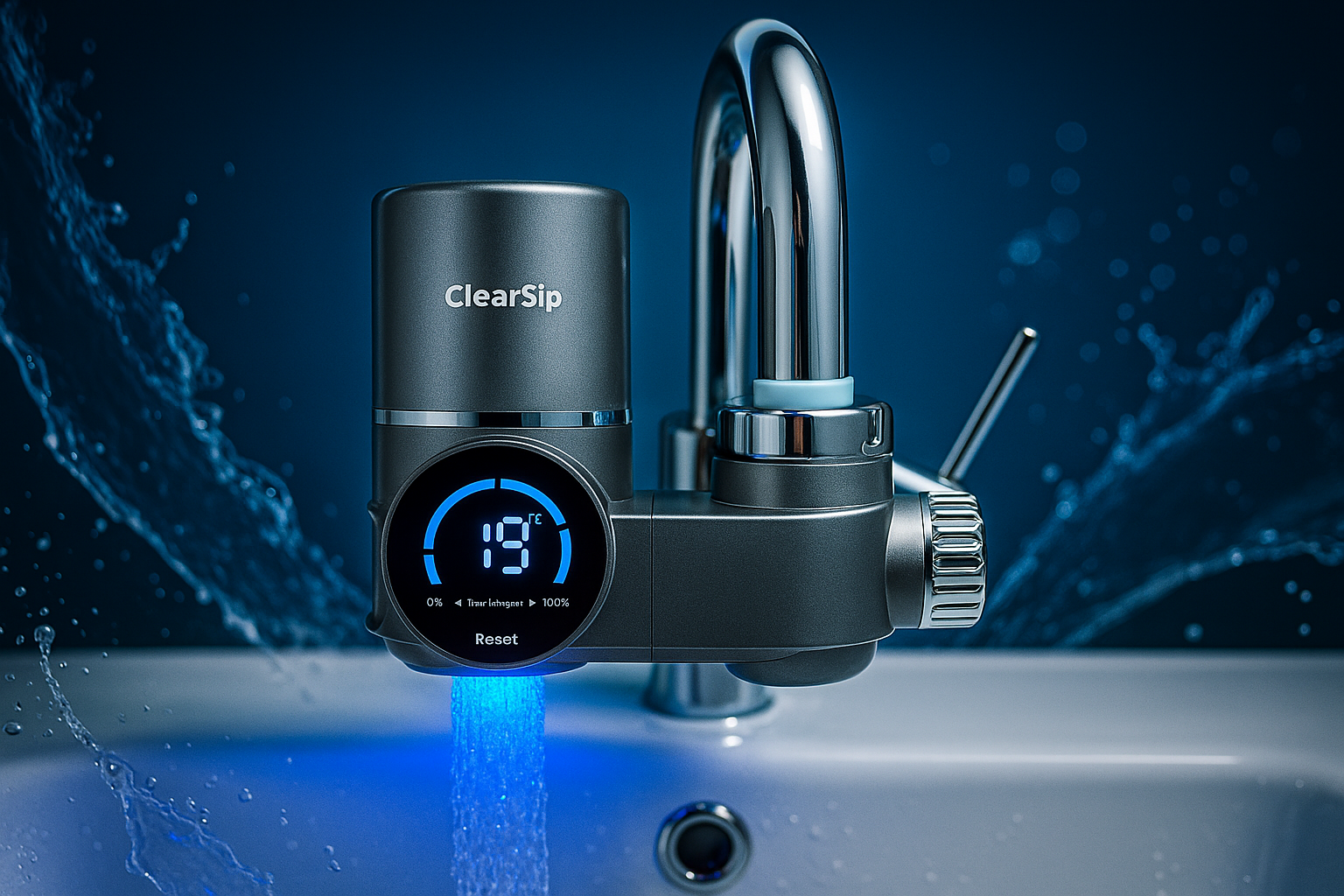
Types of filters: which type is right for you?
- Filter jugs
Affordable and easy, but limited in capacity and effectiveness.
- Faucet filters
Direct filtration at the tap, ideal for everyday use.
- Multi-layer UV filters
The most advanced option: combining mechanical and chemical filtration with UV light.
Frequently Asked Questions
Does a filter remove medication from tap water?
Yes, activated carbon and UV filters can largely remove drug residues, depending on the type of filter.
Do I need to replace my filter often?
On average, every 3 to 6 months. Regular maintenance extends the lifespan and effectiveness.
Can I install it myself?
Most filters are plug-and-play and can be installed without tools.

